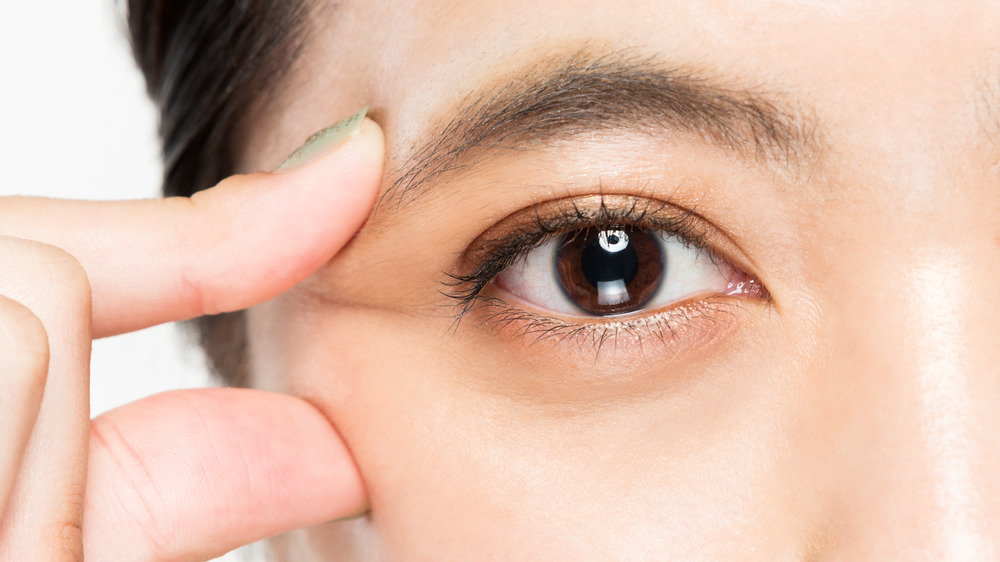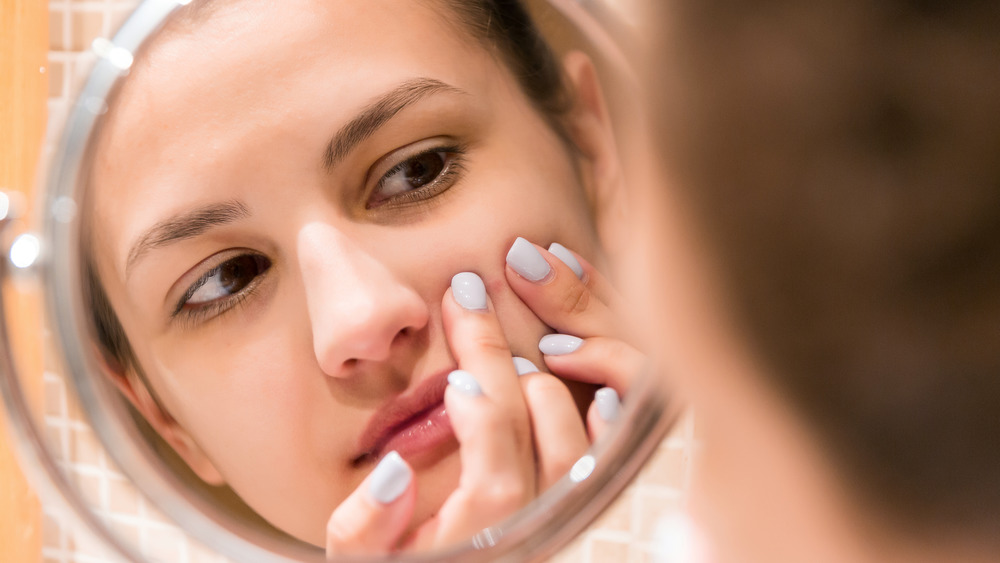Why You Need To Stop Picking At Your Skin
While it can be normal to pick at a pimple or scab from time to time, some people feel a compulsive urge to pick at their skin. The compulsion can be nearly impossible to control (via Harvard Health Publishing). This is a fairly common disorder called skin-picking disorder, a group of disorders related to obsessive compulsive disorder. It is also known as compulsive skin picking, dermatillomania, or excoriation disorder (via Cleveland Clinic). According to the International OCD Foundation, as many as 1 in 20 people may be affected by skin picking disorder. It is more common in women and can begin at any age.
People with skin picking disorder pick at skin from one or more parts of their body. Common areas include face, cuticles, head, back, arms, legs, hands, and feet. Most people use their fingers and fingernails to do the picking, but others may bite the skin or use tweezers or scissors. Picking at your skin can lead to a number of health problems, including recurrent lesions and scarring, as well as serious infections. Many people with skin picking disorder experience embarrassment and shame as a result of the condition, which can lead to depression and anxiety.
How to treat skin picking disorder
The first step to stopping skin picking is to know your triggers. Some people pick when they're bored, anxious, or have negative emotions. Some people find the act of skin picking pleasurable. Others pick when they are itchy or have acne. Once you know your triggers you can figure out the next course of action. If skin picking is tied to depression or anxiety, you should consider consulting a mental health professional. If you find yourself picking at acne, a visit to the dermatologist might help.
One strategy to reduce skin picking involves changing your environment, or other factors, to make picking harder. This is called stimulus control and can mean keeping your nails short, wearing gloves, or keeping your hands busy with objects like stress balls or silly putty.
Clinical trials have found cognitive behavioral therapy to be an effective treatment for skin picking disorder, per Verywell Mind. This form of talk therapy can help people with the disorder create healthier behaviors and beliefs by identifying unhealthy ones. Some health care providers may also suggest medications like selective serotonin reuptake inhibitor (SSRI) antidepressants, though evidence of their effectiveness for skin picking disorder is limited.


